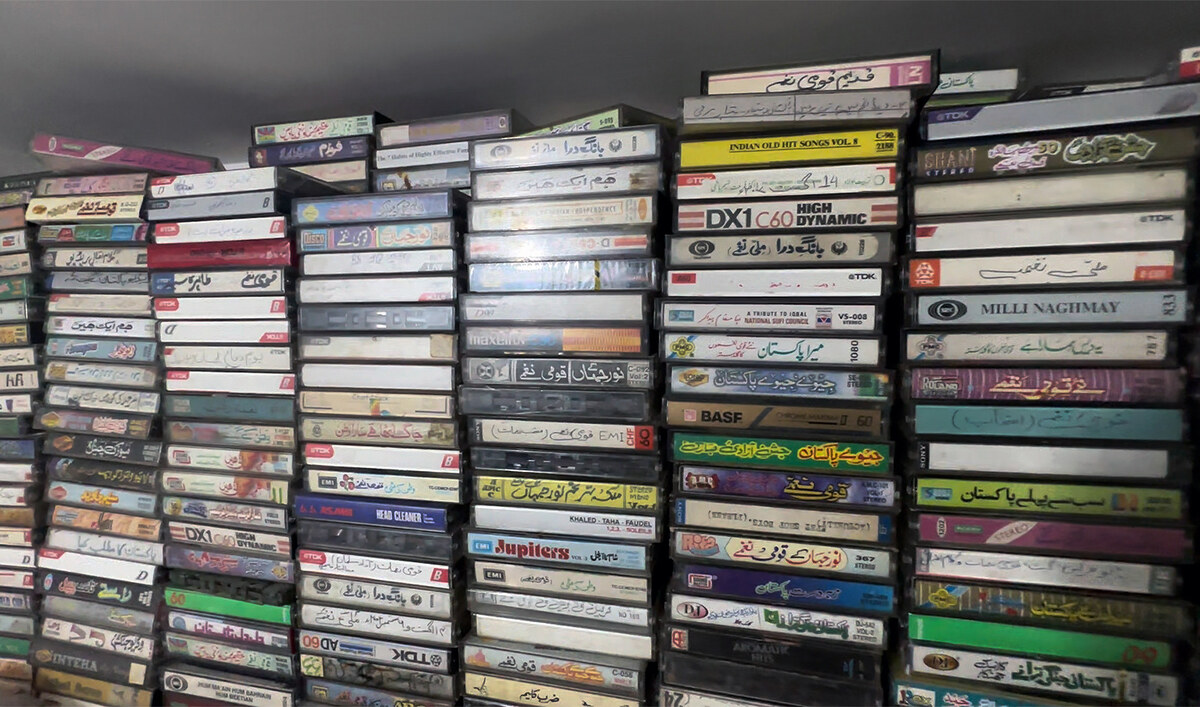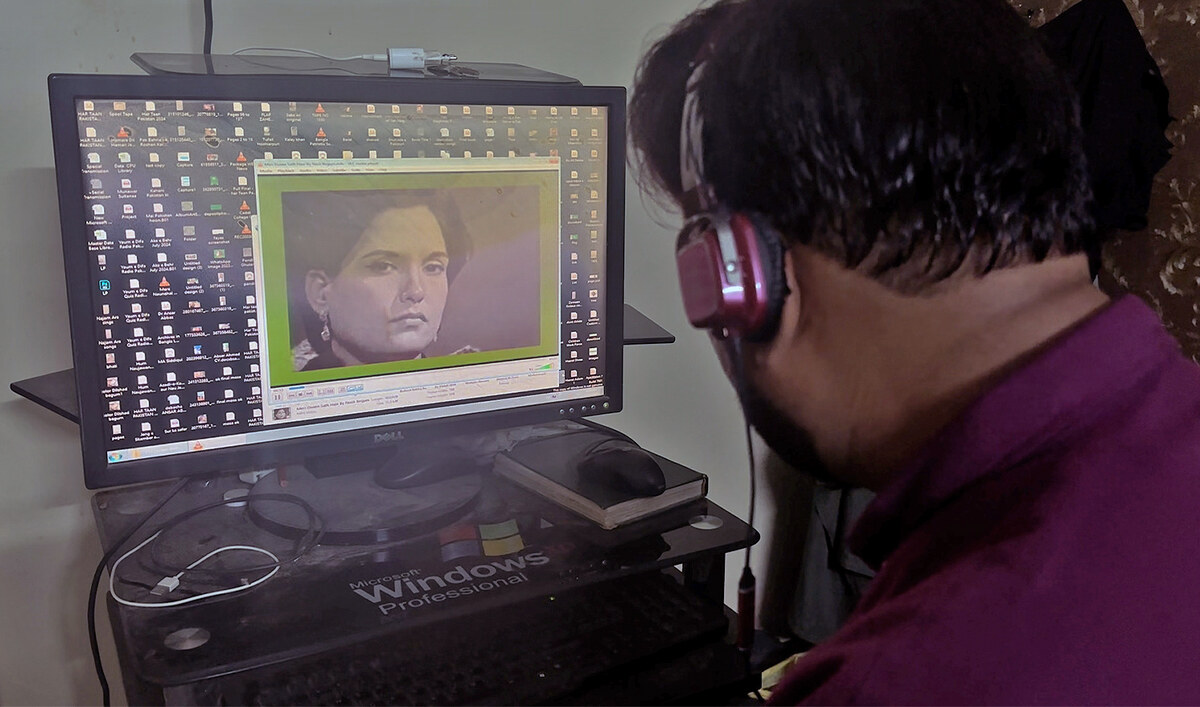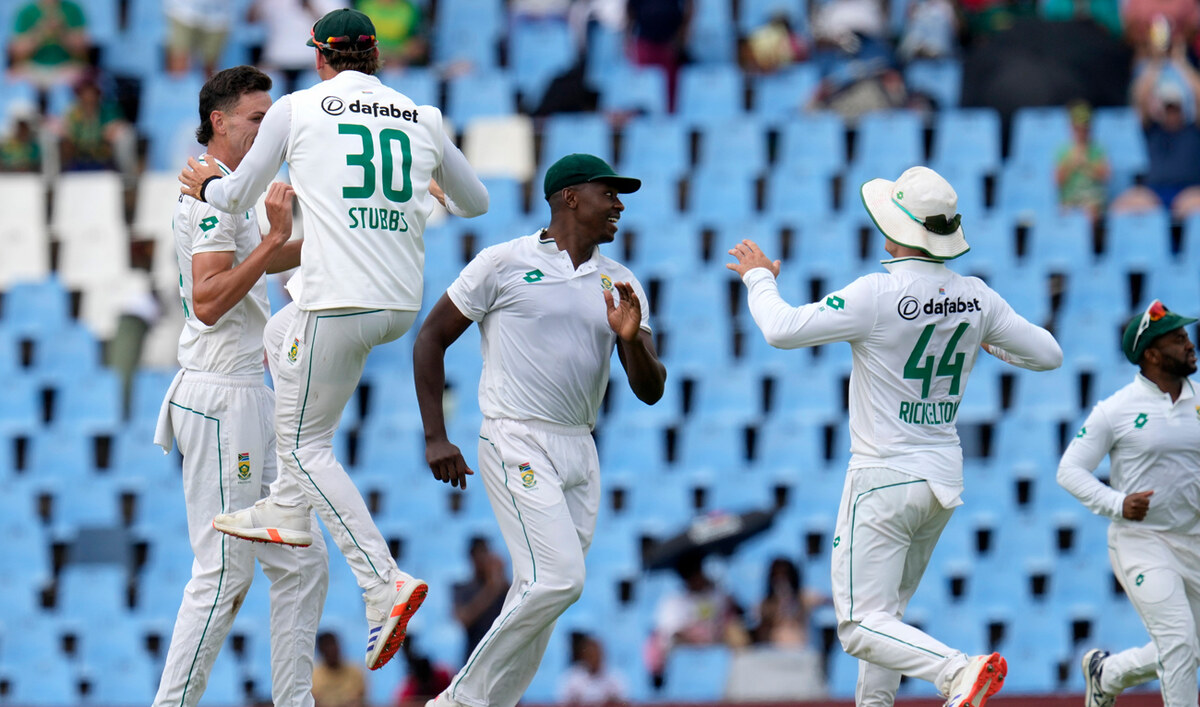KARACHI: Absar Ahmed placed the large vinyl disc on a vintage Dansette phonograph and lowered the stylus onto the record as the sound of a decades-old Pakistani patriotic song began to fill the room.
Ahmed, a 36-year-old broadcaster and researcher, was three years old when he fell in love with the iconic 1987 song “Dil Dil Pakistan,” becoming a devotee and going on to collect more than 5,000 patriotic songs, or “milli naghmas” as they are called in Urdu. The songs span decades, and Ahmed’s collection has them in dozens of languages and formats, including cassette tapes, CDs, and vinyl records.
Ahmed has also authored two books on national songs, “Yeh Naghmay Pakistan Kay” and “Har Taan Pakistan.”
“I started collecting cassettes in 1996 when I bought my first cassette,” Ahmed told Arab News. “By 1999, I properly began gathering milli naghmas and at that time.”

The picture taken on September 29, 2024, shows the patriotic song collection of Absar Ahmed. (AN photo)
Many recordings have fallen into Ahmed’s lap as his reputation as a collector has spread. Others he has had to research, find and buy, traveling across Pakistan just to get his hands on a particular vinyl disk or a set of spool tapes. But many hundreds of songs he has recorded directly from radio or TV.
“I would record every national song that was broadcasted on radio or television. I always kept a cassette in my tape recorder, ready to record any milli naghma that played on Radio Pakistan,” Ahmed said, referring to the country’s state broadcaster.
“This treasure, this collection of sounds from Pakistan, has been safely preserved and it is now part of my record collection.”

Absar Ahmed, Pakistani broadcaster and author, is listening to a song on his computer in Karachi, Pakistan, on September 29, 2024. (AN photo)
A significant part of Ahmed’s collection is in the Bengali language as many Pakistani patriotic songs were sung by Bengali artists when present-day Bangladesh used to be a part of Pakistan before it seceded after the 1971 war.
Mufeez Rahman, an official who worked at Radio Pakistan’s Dhaka station, had protected the records from rioters in 1971, Ahmed said. In 2014, he contacted the Pakistani collector after learning about his collection through the Internet.
“I can’t even imagine how I found these,” Ahmed said. “They were no longer available anywhere else but before his death, he [Rahman] made sure to pass them on to me.”
One of Ahmed’s most notable finds is the first Indian national song recorded in 1911, “Tarana-e-Milli,” based on a poem by the legendary Allama Muhammad Iqbal, widely regarded as having animated the impulse for the Pakistan Movement and who would go on to become the national poet of Pakistan after the country’s creation out of India in 1947.
The 1911 version was sung by Ustad Pyare Sahib, a revered singer from the Indian city of Kolkata, who migrated to Karachi after the partition of the subcontinent.
“I was able to obtain the audio of this song in a digital format, which was given to me by someone who had the gramophone record although it later broke.”
Ahmed has national songs in Urdu, Punjabi, Bengali, Sindhi, Balochi, Brahui, Saraiki, Sheena, Pashto, Burushaski and Gilgiti languages. He has also digitized a significant portion of his collection, hoping the precious recordings will be accessible to future generations.
“Preserving them and passing them on to future generations is the most important responsibility,” Ahmed said.
His efforts are recognized by experts in the field.
Hafiz Muhammad Noorullah, a producer at Radio Pakistan, said Ahmad’s collection was of “great significance.”
“Absar Ahmad has compiled a collection of over 5,000 songs. Such a vast number of national songs is not even preserved at Radio Pakistan,” he told Arab News.
“National songs carry their own importance, and preserving them for future generations is a monumental task that deserves recognition.”




















